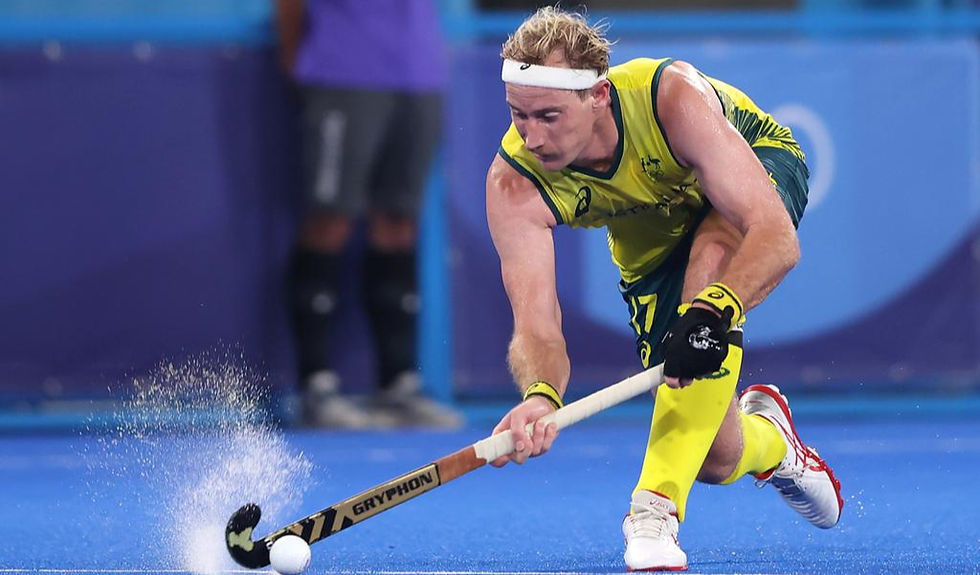Aussie Olympians: Juggling Jobs and Training
- Indu Hansana
- Jun 15, 2024
- 3 min read
By I. Hansana, Jadetimes News

Balancing Act: Aussie Olympic Hopefuls Juggle Day Jobs and Training
In the relentless pursuit of Olympic glory, athletes often face a balancing act between their sporting ambitions and the need for financial stability. This delicate equilibrium is exemplified by a cohort of Australian athletes who navigate dual careers, seamlessly integrating rigorous training regimens with demanding professional lives.
Zachery Schubert From Volleyball Courts to Cricket Farms
Zachery Schubert, a 28 year old beach volleyball player from Adelaide, epitomizes the spirit of innovation and resilience. Alongside his quest for a medal at the Paris 2024 Olympics, Schubert manages Schubugs Cricket Farm, a venture that melds his family's agricultural roots with his expertise in nutrition. This unconventional initiative, housed in eight shipping containers, breeds millions of crickets for human consumption, catering primarily to Asian markets due to the insects' sustainability and nutritional benefits.
Schubert's journey into entrepreneurship stems from a childhood steeped in sport. Introduced to volleyball at 13 and inspired by his cousin, Olympic hockey player Grant Schubert, he swiftly ascended through the ranks, relocating to Adelaide to pursue his dreams more fervently. However, financial stability has been an enduring challenge. During his early career, Schubert juggled various jobs, including late night dishwashing shifts, to sustain his athletic pursuits. While recent successes have provided a financial boost, income remains unpredictable, necessitating careful retirement planning.
Despite these challenges, Schubert maintains a meticulous balance, dedicating weekends to oversee the farm while continuing rigorous training alongside teammate Thomas Hodges. His qualification for Paris 2024 underscores his resilience and determination to succeed both in sport and business.

Aran Zalewski Leading on the Field and in the Boardroom
At 32, Aran Zalewski exemplifies leadership both on and off the field as the captain of Australia's renowned men's hockey team, the Kookaburras. Zalewski, a two time Olympian, combines his stellar hockey career with a senior consultancy role at Deloitte in Perth, where he works three days a week. His day begins early, with rigorous gym sessions preceding his professional duties, underscoring his commitment to excelling in both domains.
Zalewski's aspiration extends beyond the hockey pitch; he plans to transition into full time consultancy post retirement, leveraging his experience and leadership skills honed through elite sports. His dual roles command respect from colleagues and teammates alike, embodying the synergy between sporting prowess and professional acumen.

Aly Bull Kayaking Through Waters, Fighting Fires
For Aly Bull, 28, the pursuit of excellence transcends the waters of competitive kayaking to the frontline of firefighting in Brisbane. A seasoned Olympian, Bull competed in both Rio 2016 and Tokyo 2020, her dedication epitomized by an Olympic rings tattoo that sparks conversations among colleagues. Balancing the rigorous demands of both professions requires meticulous planning and unwavering support from colleagues and organizations like Paddle Australia.
Despite this support, financial stability remains a constant concern. While basic support helps cover living expenses, Bull supplements her income through additional work, highlighting the financial challenges faced by even seasoned athletes. Her journey underscores the resilience and dedication required to excel in elite sports while navigating professional obligations outside the arena.

Duncan Free Navigating Sports and Career Transitions
Duncan Free, a retired four time Olympian and current director at Griffith Sports College, offers a retrospective view on the evolution of athlete support and career transitions. Free's illustrious rowing career, punctuated by Olympic accolades, now informs his role in nurturing the next generation of athletes. He acknowledges the financial realities faced by athletes reliant on training grants and government support, emphasizing the importance of supplementary income to sustain dual careers effectively.
Free's transition from athlete to sports administration highlights the pivotal role of supportive employers in facilitating career longevity beyond competitive sports. His insights underscore the broader challenges faced by athletes at various stages of their careers, irrespective of their Olympic achievements.

These Australian athletes embody the ethos of resilience and determination, navigating the intricate balance between sporting aspirations and professional careers. Their stories reflect not only the challenges but also the opportunities inherent in pursuing dual careers, underscoring the symbiotic relationship between athletic excellence and professional achievement. As they prepare for the Paris 2024 Olympics and beyond, their journeys serve as a testament to the enduring spirit of perseverance in the face of adversity.







































Comments